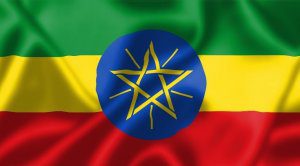 Leading on Magnitsky sanctions will be an important first step, both to show solidarity with the Tigray community, and to impose real consequences against those committing atrocity crimes against them, write Maria Reisdorf and Sarah Teich in the Hill Times.
Leading on Magnitsky sanctions will be an important first step, both to show solidarity with the Tigray community, and to impose real consequences against those committing atrocity crimes against them, write Maria Reisdorf and Sarah Teich in the Hill Times.
By Maria Reisdorf and Sarah Teich, June 17, 2021
A war is raging in Ethiopia’s northern-most province of Tigray. Fighting between the Ethiopian military and the Tigray People’s Liberation Front (TPLF) has now been going on for six months, creating instability in the strategic Red Sea region.
The Ethiopian military, backed by Eritrean forces, has also been accused of committing war crimes and crimes against humanity against Tigray civilians. There is evidence of mass extrajudicial killings; rape is used pervasively as a weapon of war; millions of Tigrays have been displaced; and the region is facing an imminent and disastrous famine as humanitarian aid remains blocked by Ethiopian forces. Some are calling this genocide.
Ethiopian Prime Minister Abiy Ahmed is quickly losing international credibility as atrocities mount. After winning the 2019 Nobel Peace Prize for facilitating peace and international cooperation, the Nobel Committee rebuked his actions in Tigray in November of last year.
Aiming to avoid international criticism, Abiy promised to protect civilians and increase access to humanitarian aid. He also promised that Eritrean troops would withdraw from the conflict. These promises were not kept, and in fact, the unfolding human rights crisis in Tigray is only worsening as the violence rages on.
In the United States, the Biden administration has committed US$305-million in humanitarian aid, suspended economic and security assistance to Ethiopia, and applied visa restrictions to individual Ethiopian and Eritrean officials. On May 26, U.S. President Joe Biden called for a ceasefire and the withdrawal of troops.
There are growing calls for the Biden administration to impose Magnitsky sanctions (or sanctions that target specific individuals responsible for atrocities) on individual Ethiopian and Eritrean officials responsible for these human rights violations, in addition to the visa restrictions already imposed. In this, Canada can provide leadership.
Magnitsky sanctions impose visa bans, asset freezes and block properties. Targeted Magnitsky sanctions feature an added benefit of raising awareness against the perpetrators of human rights crimes, naming and shaming them.
Magnitsky sanctions are internationally lauded as an important and effective human rights measure. As the power of international institutions like the UN Security Council to impose sanctions for human rights abuses wane, domestic Magnitsky laws now adopted across Europe and North America provide opportunity to deter against human rights violations.
Ottawa should answer the call for collective action that its Ambassador to the United Nations Bob Rae has made by imposing Magnitsky sanctions on individual Ethiopian and Eritrean officials responsible for the ongoing atrocities in Tigray, and empower its diplomats across Western capitals and institutions to follow suit.
Canada has taken only limited action so far to combat the situation in Tigray. In November, Canada provided Ethiopia with $3-million in humanitarian aid. In February, Prime Minister Justin Trudeau spoke with Abiy and “welcomed efforts” to expand humanitarian assistance access and protect civilians. In March, Minister of Foreign Affairs Marc Garneau expressed concern when speaking with Ethiopia’s deputy prime minister and welcomed their efforts to improve the situation in Tigray. Yet amid growing international condemnation, Canada has remained relatively silent.
For a nation that prides itself on being committed to human rights, silence in the face of a devastating and worsening conflict is insufficient. Leading on Magnitsky sanctions will be an important first step, both to show solidarity with the Tigray community, and to impose real consequences against those committing atrocity crimes against them.
Maria Reisdorf is a recent Queen’s law graduate.
Sarah Teich is an international human rights lawyer, a senior fellow at the Macdonald-Laurier Institute, and a legal adviser at the Canadian Coalition Against Terror.




